10 Reasons Gregg Popovich Will Always Be a Coaching Icon
After 29 seasons, Gregg Popovich finally steps away from coaching, leaving behind one of the most iconic runs in NBA history. Now running the front office, he hands the reins to a future shaped by Victor Wembanyama. Let’s look at all the things that made Popovich a legend.
He Achieved the Most Regular-Season Wins in NBA History
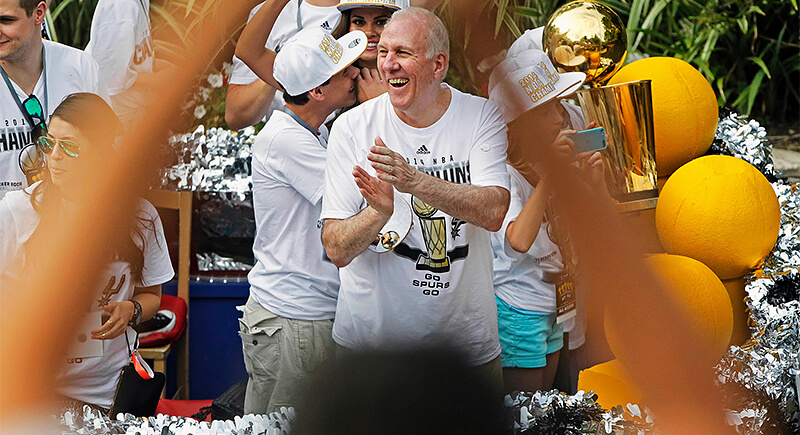
Credit: X
Gregg Popovich led the San Antonio Spurs to rack up 1,422 regular-season wins—the most in the history of the NBA. His run included five championships, three Coach of the Year awards, and Olympic gold with the U.S. men’s team. He shaped future leaders like Steve Kerr and Ime Udoka while keeping the Spurs focused and competitive. In 2023, he joined the Hall of Fame.
His Coaching Philosophy Prioritized Unselfish Play and Discipline
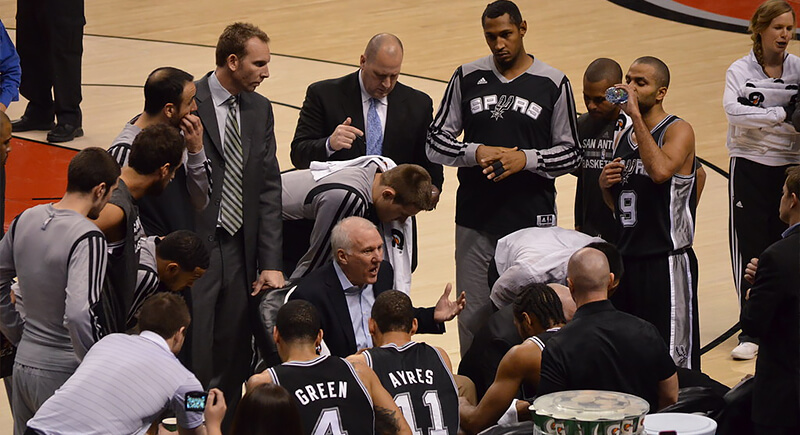
Credit: flickr
Popovich’s coaching style focused on unselfish play and disciplined teamwork. His teams moved the ball, played tough defense, and put winning above personal stats. Others chased headlines, but the Spurs stuck to fundamentals and outperformed flashier teams.
He Fostered Deep Personal Connections with His Players
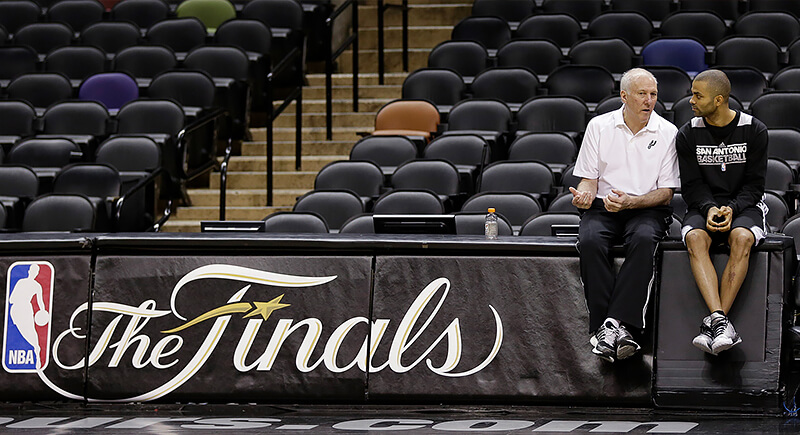
Credit: X
Popovich made it a priority to know each player off the court. He listened closely, asked about their lives, and built trust one conversation at a time. Group dinners and casual hangouts became part of his routine—not for show, but to connect. His approach turned a group of athletes into a tight unit with a lasting bond.
He Cultivated a System Where Teamwork and Clear Roles Were Paramount
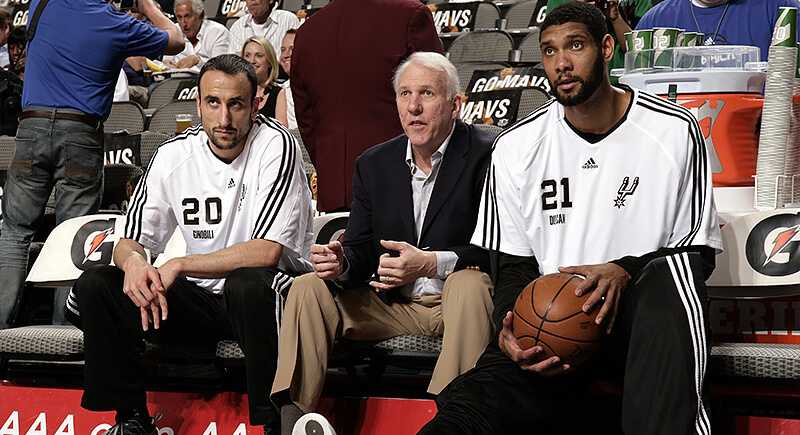
Credit: X
In San Antonio, Popovich emphasized clarity in roles, where experienced leaders like Duncan and Ginóbili set the tone for younger teammates. Their leadership was pivotal in maintaining the Spurs’ consistency and dominance over two decades.
He Valued Coachability, Hard Work, and Honesty in Players
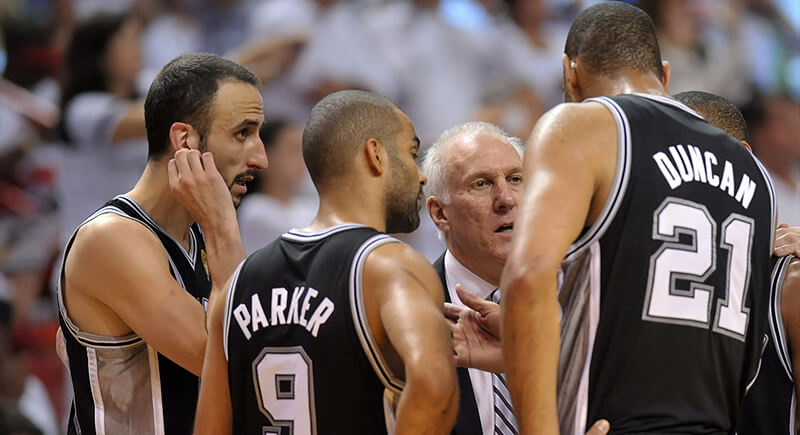
Credit: Facebook
Popovich valued players who listened, took criticism, and worked hard without needing constant praise. He spoke plainly and clarified expectations, and didn’t dance around the truth. That kind of honesty built respect. He looked for teammates who cared about the group, not just their own stats. Celebrating others’ success was part of the job.
He Demonstrated a Keen Eye for Identifying and Developing Underrated Talent
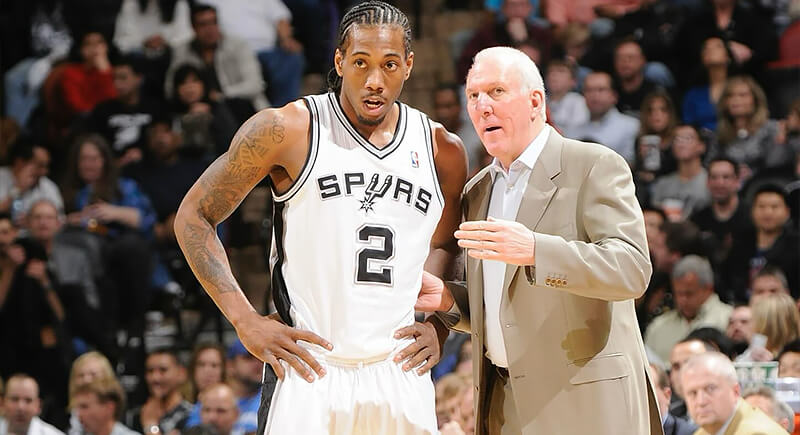
Credit: Instagram
Spotting talent no one else noticed became a habit. Popovich turned late picks and foreign prospects into cornerstones—Tony Parker, Manu Ginóbili, and Kawhi Leonard didn’t arrive as stars, but they became ones under his watch. His focus was sharp: teach the basics, build confidence, and value effort over hype.
He Adapted His Coaching Strategies to the Evolving NBA Landscape
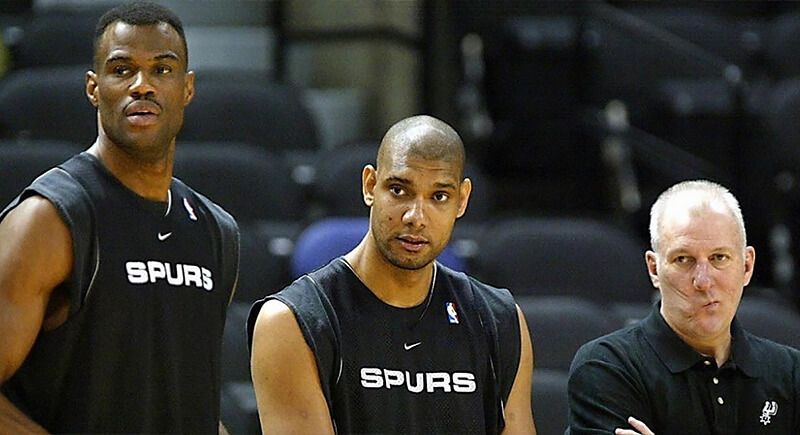
Credit: Reddit
Popovich adjusted to the game without losing what worked. Early Spurs teams leaned on defense and Tim Duncan’s control inside. As the league changed, he shifted toward quicker ball movement and outside shooting. He worked with veterans, then guided younger players like Kawhi Leonard and Victor Wembanyama.
He Balanced Directness with Humor and Approachability
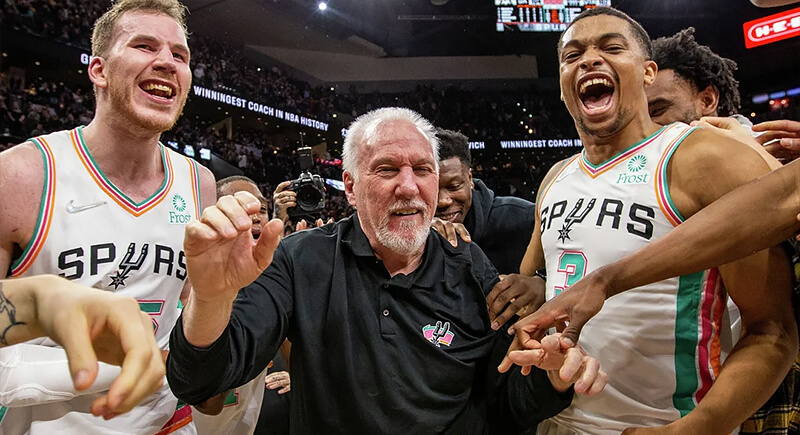
Credit: Reddit
Popovich had a way of keeping things real without making it heavy. He joked with players, challenged them in film sessions, and knew how to cut tension with a one-liner. He didn’t try to be everyone’s friend, but players respected how he made things clear without losing the human side.
He Led the Spurs to an Unprecedented Era of Consistent Winning
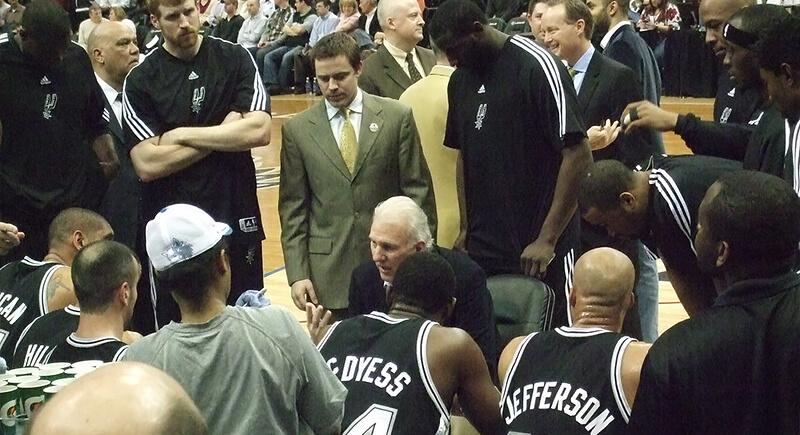
Credit: flickr
From 1997 to 2019, Popovich stacked 22 straight winning seasons. His teams got least 50 wins in 18 of those seasons, a feat unmatched by any other coach in NBA history.Through roster changes, evolving styles, and rising stars, he kept the Spurs sharp and focused. With a .707 win percentage over that span, he topped all major U.S. sports in consistency.
His Championship Teams Thrived on Adaptability and Player Trust
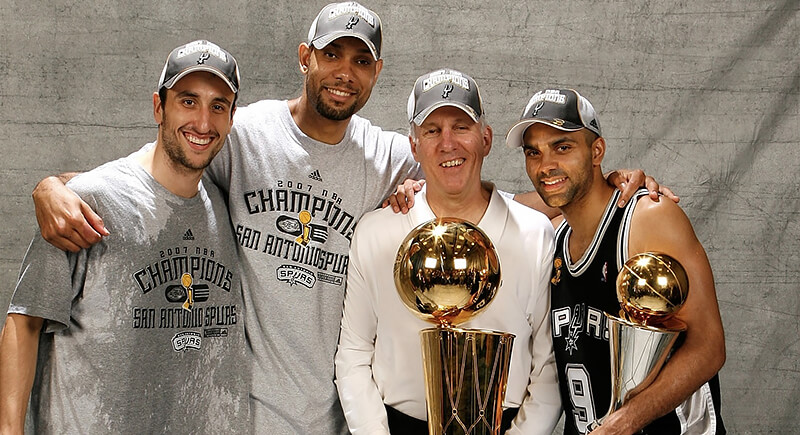
Credit: Facebook
Popovich’s title runs weren’t built on repeating a formula—they thrived on timing and trust. In 2003, he handed the reins to a young Parker in crunch time. In 2005, he let Ginóbili close games, even if it meant benching a veteran. By 2014, he rotated lineups so seamlessly that no player averaged more than 30 minutes in the Finals.
He Mentored a Generation of Successful NBA Coaches
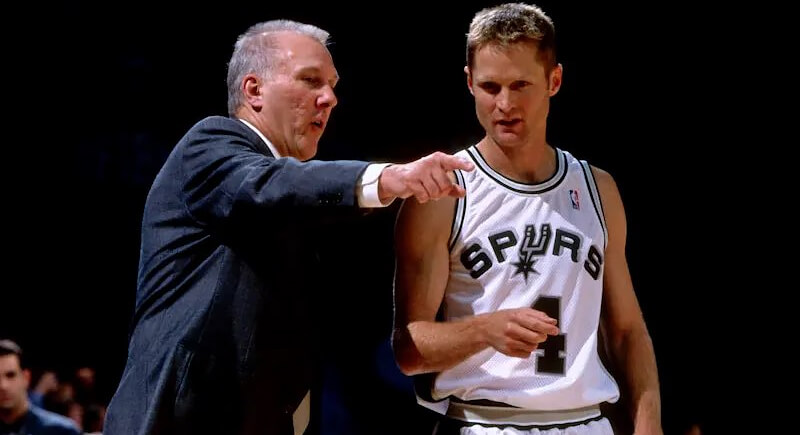
Credit: X
Popovich also shaped coaches. Steve Kerr, once a player under him, brought lessons from San Antonio into his role with the Warriors. Mike Budenholzer won a title in Milwaukee after years as an assistant. Monty Williams, Ime Udoka, and Taylor Jenkins all carried his influence into their own head coaching jobs.
He Used His Platform to Advocate for Social and Political Issues
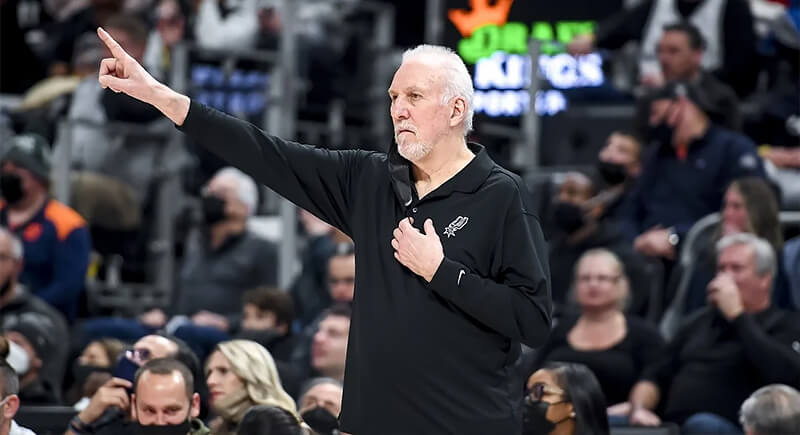
Credit: Reddit
In 2023, before a game in Dallas, he gave a bold nine-minute speech calling for stronger gun laws and blasting lawmakers for their lack of action. He used his spot on the NBA stage to speak out—loudly and clearly—about social issues. He joined rallies, led team discussions, and made sure uncomfortable truths weren’t brushed aside.
He Instilled a Culture of Purposeful Team Defense
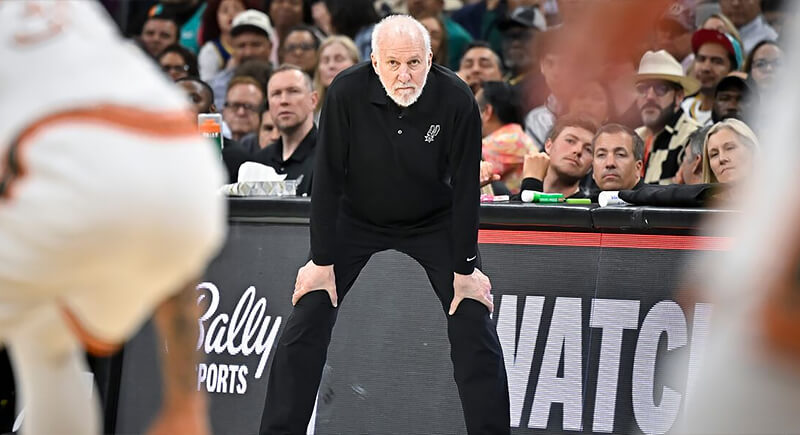
Credit: Facebook
Players knew their job on defense and stayed locked in from tip-off to buzzer. On the glass, he stressed defensive rebounds to stop extra possessions before they started. Turnovers were treated as missed chances, not minor mistakes.